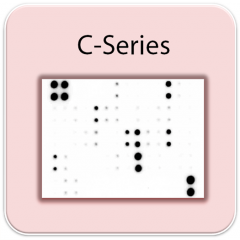All cell types are in contact with the ExtraCellular Matrix (ECM), a complex and dynamic network of macromolecules with different physical and biochemical properties. The ECM plays an essential rule in structural support, adhesion, movement and cell regulation. Its components are frequently monitored, which requires robust and user-friendly kits.
In this post, I invite you to take a look at 5 popular kits you should know about… to boost your ECM studies!
Blyscan™ Glycosaminoglycan Assay
 The Blyscan™ Assay is a quantitative dye-binding method for the analysis of sulfated proteoglycans and glycosaminoglycans.
The Blyscan™ Assay is a quantitative dye-binding method for the analysis of sulfated proteoglycans and glycosaminoglycans.
It can be used to measure total sulfated glycan content.
Fastin™ Elastin Assay
The Fastin™ Elastin Assay is a quantitative dye-binding method for the analysis of elastins released into  tissue culture medium and extracted from biological materials.
tissue culture medium and extracted from biological materials.
Elastin forms that can be measured by the Fastin Assay as α-elastin:
- soluble tropoelastins
- lathyrogenic elastins
- insoluble elastins (following solubilization to elastin polypeptides [α-elastin, κ-elastin])
Hyaluronan Assay Purple-Jelley
The Purple-Jelley Hyaluronan Assay is used to measure the quantity of hyaluronan (hyaluronic acid) in mammalian tissue.
It is a dye-based method with a detection limit of 0.2μg.
Sircol™ Insoluble Collagen Assay
The Sircol™ INSOLUBLE Collagen Assay is a dye binding method for the analysis of insoluble  collagen fibres.
collagen fibres.
The assay can be used to assess the rate of production of newly laid down collagen fibres during periods of rapid growth, development, tissue repair, remodeling and wound healing. Sources of material includes tissues, bone and calcified tissue.
- It replaces the conventional hydroxyproline analysis. No more working with concentrated acids or alkalis!
- The Sircol Insoluble Assay uses mild acid and temperature treatment for 2 to 3 hrs.
- The solubility conversion to denatured collagen and subsequent measurement can be completed within one working day.
- The ratio of soluble and insoluble collagens can be measured using the same Sircol Dye Reagent.
Sircol™ Soluble Collagen Assay

The Sircol™ Collagen Assay is a dye-binding method for the analysis of acid and pepsin-soluble collagens. The Sircol Assay is suitable for monitoring collagen produced in situ or during in-vitro cell culture and in-vitro extracellular matrix, (ECM), formation:
in vivo
– collagen, soluble in cold acid or pepsin, recovered from mammalian soft tissues, cartilages and fluids.
in vitro
– collagen, soluble in cold acid or pepsin, released into cell culture medium during cell growth and cell maintenance.
– collagen, soluble in cold acid or pepsin, recovered from newly formed extracellular matrix that has been deposited onto cell culture treated plastic surfaces, (T-flasks and microwell plates).
Looking for more reagents for your ECM research?
Leave a message below or get in touch with your local tebu-bio contact to learn about other reagents available, or discover more about the kits we looked at above, and how to use them in your research projects.





